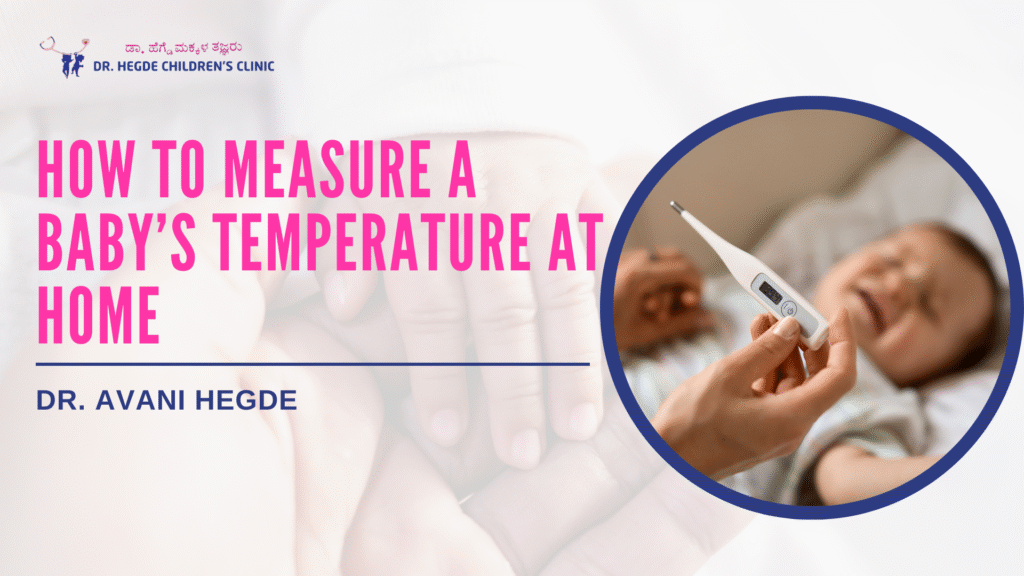When your baby feels unusually warm or looks unwell, the first concern for parents is fever. Knowing how to measure your baby’s temperature correctly at home can help you decide whether simple care is enough or if you should visit a pediatrician in Banashankari for expert guidance.

Ways to Measure a Baby’s Temperature
1. Digital Thermometer (Most Common)
- Place it under the baby’s armpit.
- Hold the arm gently against the body until it beeps.
- This method is safe and simple for infants.
2. Rectal Thermometer (Most Accurate)
- Provides the closest reading to the body’s core temperature.
- Insert carefully with a small amount of lubricant.
- Recommended for newborns, but should be done very gently.
3. Ear Thermometer
- Suitable for babies over 6 months.
- Measures temperature quickly but may be less accurate if not positioned correctly.
4. Forehead (Temporal Artery) Thermometer
- Non-invasive and easy to use.
- Simply swipe across the baby’s forehead.
- Good for quick checks, especially while the baby is sleeping.
Tips for Accurate Reading
- Always use a digital thermometer instead of old mercury ones.
- Avoid measuring right after a bath or breastfeeding—wait at least 15 minutes.
- Keep the baby calm; crying or restlessness can sometimes affect the reading.
- Clean the thermometer before and after each use.
FAQs on Measuring Baby’s Temperature
1. What is a normal temperature for a baby?
A normal temperature is usually 36.5°C to 37.5°C (97.7°F to 99.5°F).
2. When should I worry about fever?
If your baby under 3 months has a temperature above 100.4°F (38°C), contact a pediatrician immediately.
3. Can I use an ear thermometer for a newborn?
No, it is best avoided for newborns. Rectal or armpit measurements are more reliable.
4. Should I give medicine if my baby has fever?
Never give medicine without consulting your doctor. Some fevers need monitoring, not medication.
Conclusion
Measuring your baby’s temperature the right way helps you respond quickly and confidently. Choose the thermometer best suited for your child’s age and always consult your pediatrician if the fever is high or persistent.
To learn more, watch Dr. Avani Hegde’s detailed video on YouTube. For expert child care, visit the Best Pediatrician in Banashankari.



